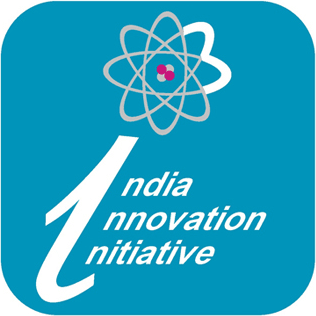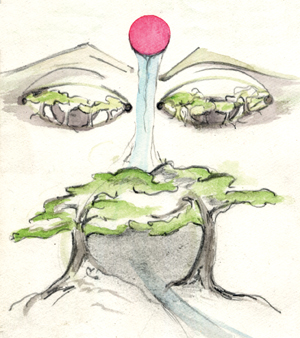Industry
Power finance: Financial institutions in India's hydropower sector - A report by SANDRP, Urgewald and IRN
Posted on 12 Aug, 2010 05:01 PMThis report published by SANDRP, Urgewald and International Rivers Network (IRN) provides a brief background on India's power and financial sectors and illustrates the issues at stake by giving examples of two important power projects in India, the Dabhol project and the Maheshwar project.
The next part of the report describes the role that the domestic and international financial institutions have played and continue to play and the controversies that have been associated with the functioning of these institutions in the implementation of the hydropower projects in India.
The report emphasises the importance of the role of NGOs and civil society movements in making these institutions accountable to the common people whose lives are affected by the projects/ interventions.
Second press release from Water Initiatives Orissa on the myth of Surplus Water in Orissa
Posted on 11 Aug, 2010 01:46 PM
- WIO demands the Government of Orissa to come out with a White Paper on water first and then decide on new allocations.
- No new industries should be allowed to draw water unless this White Paper prepared and made public.
- That Orissa is a ‘Surplus Water’ state is a ‘myth’.
Water sector and reforms - Report of workshop organised by CASUMM (2007)
Posted on 02 Aug, 2010 12:08 AMThe workshop was organised in response to the implementation of two water supply projects in Bangalore and Mysore as a part of the Water Sector Reforms under the Jawaharlal Nehru National Urban Renewal Mission (JNNURM) and the increasing trend of privatisation under the water sector reforms in cities like Bangalore and Mysore.
It was felt that there was a need to raise awareness among citizens and groups in Bangalore and Mysore regarding the implications of privatisation and the mechanisms through which privatisation was being introduced in the cities in India.
Accelerated Rural Water Supply Programme: CAG performance audit report (2008)
Posted on 12 Jul, 2010 01:18 AMThe performance audit report of the Accelerated Rural Water Supply Programme (ARWSP) for the period April 2002 to March 2007, conducted by the Comptroller and Auditor General (CAG), reveals numerous deficiencies in execution and implementation of works such as cases of time and cost-overrun, non-completion & delayed completion of works, non-functional & defunct works, delayed completion & non-completion of water quality mission projects, incorrect prioritization of works, wasteful and unfruitful expenditure, and expenditure on unapproved items.
Agilent Technologies: India Innovation Initiative - i3
Posted on 18 Jun, 2010 12:41 PMContent and Image Courtesy: India Innovation Initiative

The objective of the India Innovation Initiative project is to create an innovation eco-system in the country by sensitizing, encouraging and promoting innovators and facilitating commercialization of the innovations.
DST and CII jointly launched the Young Inventors initiative "Steer the Big Idea" in the year 2004. It was aimed at capturing the innovative ideas from young innovators for the benefit of Industry & society. In 2005, CII & DST joined hands with Industry to form IRIS - Initiative for Research and Innovation in Science. IRIS has been focused so far on school students i.e. innovators below the age group of 18 years. Agilent has been organizing the Agilent Engineering and Technology Awards through which it has been encouraging engineering students towards hands-on engineering in India and recognizing innovation.
CII & DST have now joined hands with Agilent to launch the nation-wide innovation competition for all innovators above the age group of 18+.
In remembrance of water: How a conglomeration of mining companies, politicians and real estate developers are endangering the vast aquifers that give Goans their water
Posted on 07 Jun, 2010 01:00 PM Author: Hartman de Souza Art: Jessica Schnabel Content Courtesy: Himal Southasian
Author: Hartman de Souza Art: Jessica Schnabel Content Courtesy: Himal Southasian
Where there is water, there is probably ore beneath.
Having trekked several times to Paikdev’s spring to gulp water pouring out of the moss-covered iron mouth, one would think the mysteries of the journey would fade. But, if anything, they have become more poignant – sitting here at this shrine to the snake deity of the Velip community in the village of Maina, in Goa’s Quepem District. It is here, amidst thousands of hectares of rolling forests, in the foothills of the Western Ghats, home to countless perennial springs and streams, wildlife and more, that a strange conglomeration of mining companies, politicians and real-estate developers are sharpening their collective sword. These activities were already afoot a year ago, with mining operations systematically destroying forests, because, as the government in Panjim stated at the time, the iron ore was needed by New Delhi to keep its nine-percent growth rate on track. This year, the message is no different.
Water conservation by Industry – A case study of Paharpur Business Center - Software Technology Incubator Park, New Delhi
Posted on 30 Apr, 2010 11:22 AMThis presentation deals with the projects implemented by Paharpur Business Centre and Software Technology Incubator Park (PBC-STIP), New Delhi towards reduction in potable water consumption through its projects on water closet replacement, waterless urinal and sensor tap.
The other potable water savings projects of PBC-STIP include dish washer (GE make), soap free water for gardening, use of native plant species, drip irrigation, hydroponics culture for growing plants and use of conductivity meter. Its initiative in water conservation runs across all verticals and it engages with the supply chain to sensitize them on water issues.
Water conservation by Industry – A case study of Mahindra and Mahindra, Zaheerabad
Posted on 30 Apr, 2010 11:07 AMThe presentation deals with Mahindra and Mahindra’s (M&M) work on optimal utilization of groundwater resources in its vehicle manufacturing plant at Zaheerabad, Andhra Pradesh. M&M had taken help from ICRISAT and Groundwater Department of GoAP to study the hydro-geology and topography of the estate and prepare ground water maps.
A time bound master plan of water augmentation was worked out to undertake activities like rainwater harvesting pits, new locations for borewells/ openwells/ percolation tanks, planting of less water intensive trees, re-usage and re-cycling of wastewater, rainwater channels to recharge the under ground water reservoirs and installation of drip irrigation.
Water conservation by Industry – A case study of PepsiCo, Roha
Posted on 30 Apr, 2010 10:54 AMThis presentation describes the vision and strategy of PepsiCo, Roha, Maharashtra and its initiatives in the area of water conservation. The plant with three filling lines (bottling and canning) has tried to achieve positive water balance through water savings at plant level, water initiatives at community level and by promoting water conservation measures in agriculture.
Water conservation by Industry – A case study of ITC, Saharanpur
Posted on 29 Apr, 2010 12:41 PMThis presentation describes the work of ITC Saharanpur, a cigarette manufacturing company in the field of water conservation. Its water saving projects are centered around re-use of treated water for reducing water consumption, Effluent Treatment Plant (ETP) based effluent network system in residential areas, rainwater harvesting, installation of Cold Plasma Unit in place of wet scrubbers and installation of a jet spray system.





